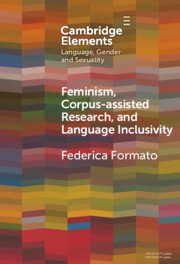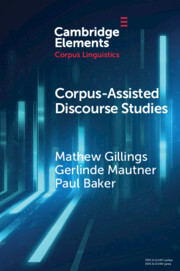2 results

Feminism, Corpus-assisted Research and Language Inclusivity
-
- Published online:
- 15 November 2024
- Print publication:
- 28 November 2024
-
- Element
- Export citation

Corpus-Assisted Discourse Studies
-
- Published online:
- 20 March 2023
- Print publication:
- 06 April 2023
-
- Element
- Export citation

